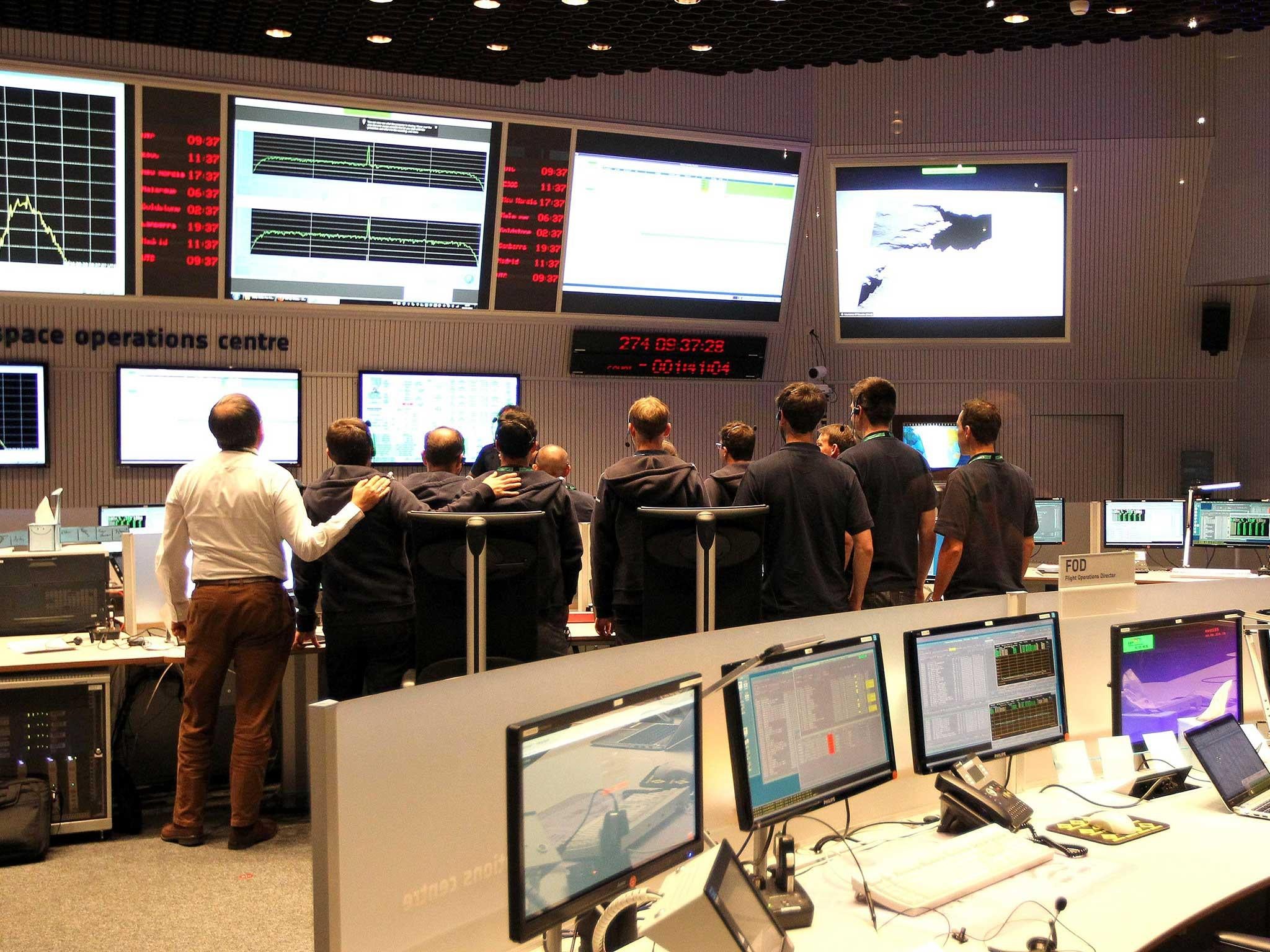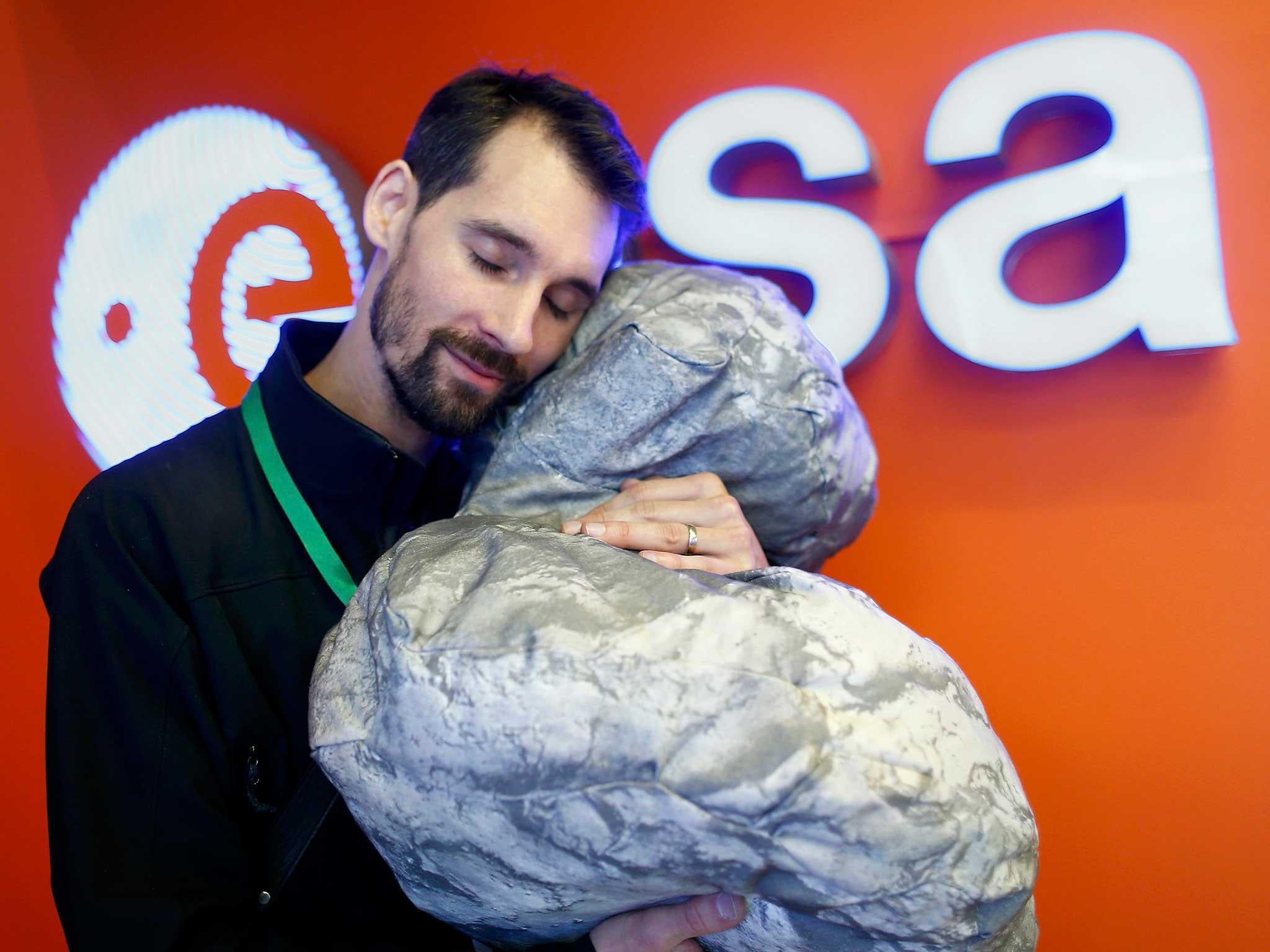Rosetta mission: Scientists say goodbye to spacecraft as it reunites with Philae lander and dies
'Farewell Rosetta! We will miss you,' a message on the operation centre's door reads
Your support helps us to tell the story
From reproductive rights to climate change to Big Tech, The Independent is on the ground when the story is developing. Whether it's investigating the financials of Elon Musk's pro-Trump PAC or producing our latest documentary, 'The A Word', which shines a light on the American women fighting for reproductive rights, we know how important it is to parse out the facts from the messaging.
At such a critical moment in US history, we need reporters on the ground. Your donation allows us to keep sending journalists to speak to both sides of the story.
The Independent is trusted by Americans across the entire political spectrum. And unlike many other quality news outlets, we choose not to lock Americans out of our reporting and analysis with paywalls. We believe quality journalism should be available to everyone, paid for by those who can afford it.
Your support makes all the difference.Scientists have said goodbye to one of the most ambitious space projects of recent years. The Rosetta spacecraft – which has spent two years finding out everything it can about the comet it orbits around – will die when it crashes into its surface.
Two years after Rosetta dropped the lander Philae onto a comet, the pair have been reunited. Neither will ever be able to communicate with Earth again – a decision made because the craft was about to become too far away from the sun to communicate with Earth anyway.
All it took to destroy the craft, and with it bring an end to Europe’s most successful space project ever, was 249 lines of instructions. They told Rosetta to fire its thrusters for 208 seconds, which put it on a collision course with the comet it has spent years orbiting around.
When it hit the ground, it joined the tiny lander it dropped onto the comet’s surface last November. Before the lander was dropped, the two had spent 10 years flying through space on their way to the comet.
The £1bn quest ended on Friday around midday UK time, when the Rosetta craft hit the comet’s surface and Earth will lose contact with it. Before then, scientists hope to get their last pieces of information – some of which might be the most important ever spotted, since Rosetta will be able to get so close to the surface.

Scientists working on the mission have spent recent days preparing to say goodbye to the craft, which they have been designing and steering through the solar system for years. Tributes have included a special box of tissues – ready for anyone weeping at the end of the mission – shaped like Rosetta itself.
A note signed by the team and left on the main control room door at the European Space Operations Centre said: "Farewell Rosetta! We will miss you."
Professor Monica Grady, a British scientist involved in the design of the lander, said she had "very mixed feelings" as the end approached.

"It's been a fantastic mission, but it's time now to move on to the next one," she said. "It's been a tremendous achievement by the European Space Agency, it's been absolutely amazing."

Join our commenting forum
Join thought-provoking conversations, follow other Independent readers and see their replies
Comments